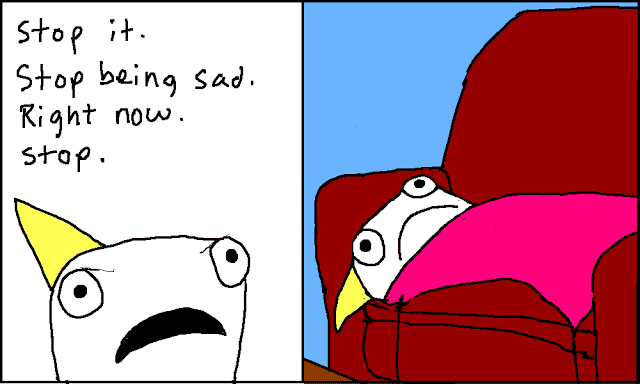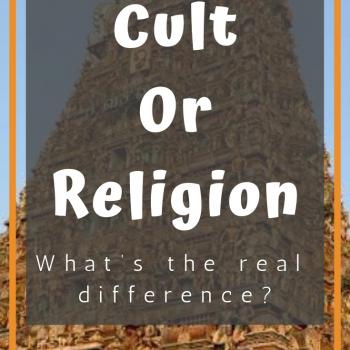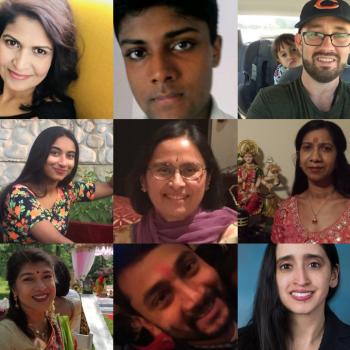It is popular in hippie circles to say that we choose our emotions. We might not choose the circumstances of our life (but maybe on some level we do because of karma), but we can definitely control how we respond to those circumstances.
“No one can make you unhappy without your permission.”
You can choose to be happy. Just choose it. Just decide to be happy and do it.
I heard that a lot growing up.
Sometimes I can see how this is true. I can feel the fork in the road as I can choose to take something badly or take it well. Sometimes, though, I can’t choose to be happy. Sometimes there is a pressure within my brain that seems to turn everything gray.
I’ve struggled off and on with depression for the last few years. I can remember when I was a kid thinking depression was so stupid. Why not just be happy? There’s so many wonderful things about life. What do you have to be sad about?
Except I really didn’t understand what depression was like back then. It doesn’t really have to do with sadness. It has more to do with a loss of meaning. Nothing feels important anymore and so nothing feels worth doing.
I fight hard against that by pursuing enlightenment (somewhat of a contradiction, to be honest, as enlightenment is not really something you pursue and grab hold of). The purpose of life is to find my way back to unity with the Self, I remind my brain.
It doesn’t always work.
I look around my life and it is wonderful. I am so blessed and so lucky. Why can’t I feel it? Many times I can, but when depression takes hold, I’m not able to process all the good around me. I can’t seem to see through the fog.
There’s not much support in Hinduism for dealing with something like this because it is “in the mind” and our minds are what we are supposed to be learning to control. Meditation is meant to train our brains so that we are in control of them.
What does that mean for someone who tries really hard to feel joy and gratitude, but instead feels dull nothingness?
Am I not trying hard enough? Or is it something in my brain that is just turning the circuitry wonky and beyond my control?
I have a desire to bootstrap my way out of depression, but I don’t even know if that’s possible. I suspect that if I could get better at meditation, it would be easier for me to refocus my mind when it starts in a downward spiral.
One thing I’ve learned for certain is not to trust my brain. It has its biases and it can mess with me. It isn’t a solid source of concrete information.
- I have major memory problems, so I know that my brain isn’t giving me all the information that I ask it for. That’s just one proof that it can’t be fully trusted.
- I experience massive mood swings during PMS. The moods are not real, as they change on a dime without any outside circumstance changing. So I often don’t trust my moods.
- If I start thinking darkly about life, I remember that it’s my brain’s interpretation, but not objective reality.
For me controlling my emotions and “choosing happiness” has come down to choosing not to always believe what my mind tells me. It may be depressed, but I am the observer and I can take a step back and watch the play of the depressed thoughts without it becoming me.
Sometimes.
Other times it is just too strong for me and I spend days or weeks barely able to get out of bed, unable to enjoy anything, and desperately searching for some shred of purpose for my life.
***
What do other Hindus have to say about depression?
The “best answer” on Yahoo Answers claims that depression happens because we have a huge attachment to something we are not getting or achieving. He advises practicing non-attachment. I’m not sure if that’s true of clinical depression, which doesn’t seem to stem from anything actually going on in one’s life. Another answer advises to practice focusing on the joy of small things like children’s smiles and sunshine.
This article sums up really well the conclusions given by a few gurus. One suggestion includes doing more service, trying to focus on helping others so that you’re not in mired in your own problems. I like this idea and I have some great new opportunities for service open to me now that I joined the Sathya Sai Baba group. Meditation is also suggested and particular mantras for healing are given.
- Refine your consciousness and build self-control through education and cultured activities.
- Clear the subconscious of negative memories, reactions and grudges through affirmation, self-reflection and sadhana.
- Fill yourself with gratitude for life and for all that you have.
- Know that happiness and unhappiness are states of mind. They are not the real you. You are the pure awareness that experiences a state of mind; you are not the state of mind itself.
- Learn to change your state of mind in meditation, turning awareness within to your spiritual nature, the radiance within you. Direct awareness through controlled breathing.
- Tune into your innate happiness through religious devotion.
- Become fulfilled and uplifted by doing things for others.
Many of the posts I found in my research refer to an article called “Hinduism and Depression” by Satguru Bodhinatha Veylanswami, but I’ve been unable to locate the source of that article. If anyone knows where to find it, I’d love to read it.
***
I wanted to write about this because I was so impressed with the way the writer of Hyperbole and a Half has described her battle with depression. I think she sums it up and explains it so well, but maybe it’s just others who have felt the “I kind of want to not exist, but I don’t plan to actually kill myself” who powerfully recognize what she has to say. I know it really speaks to me.











